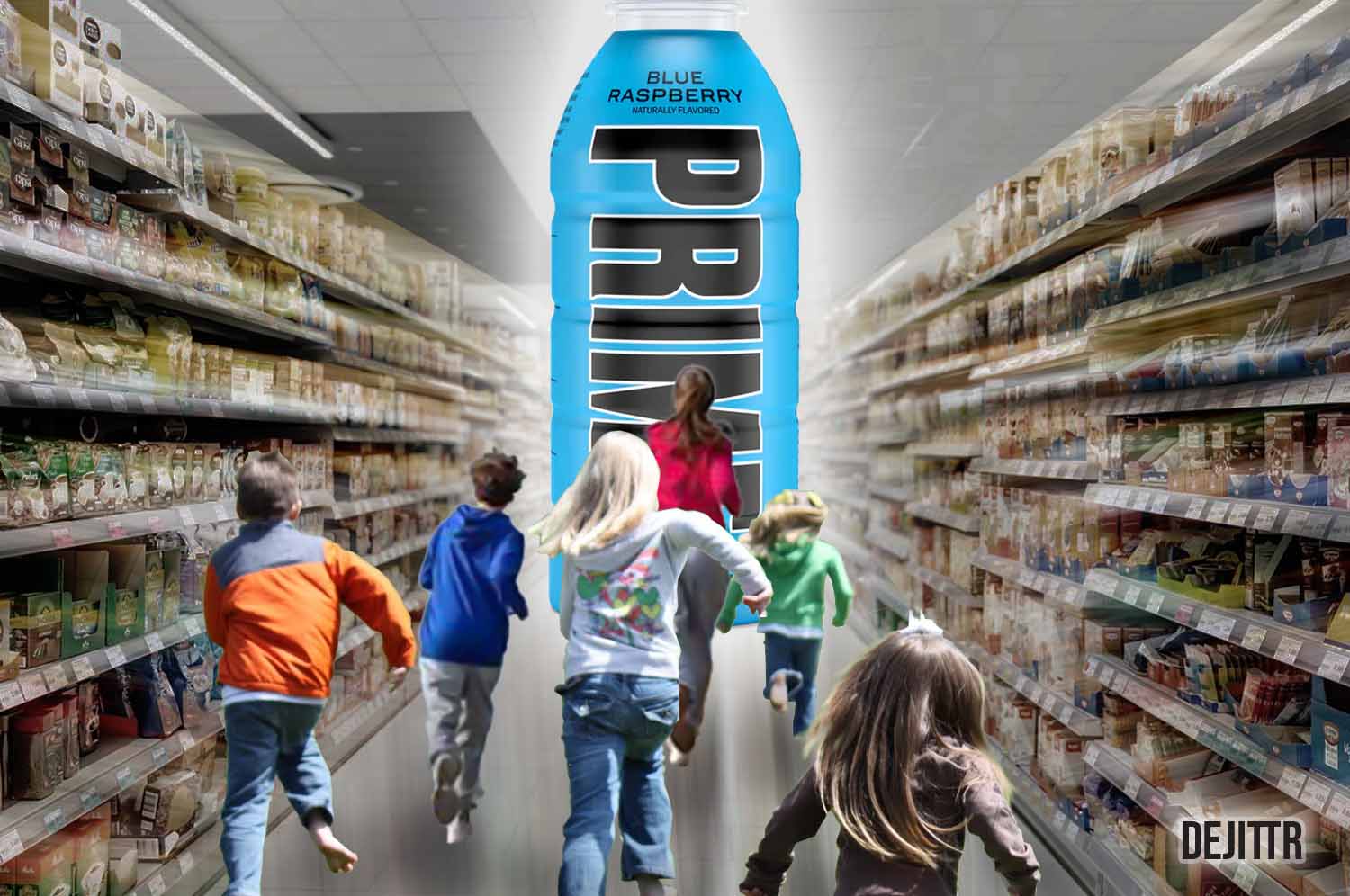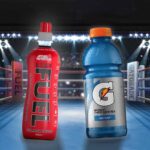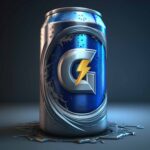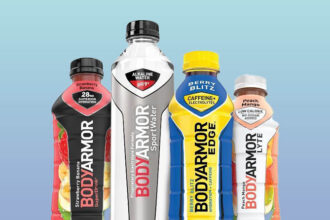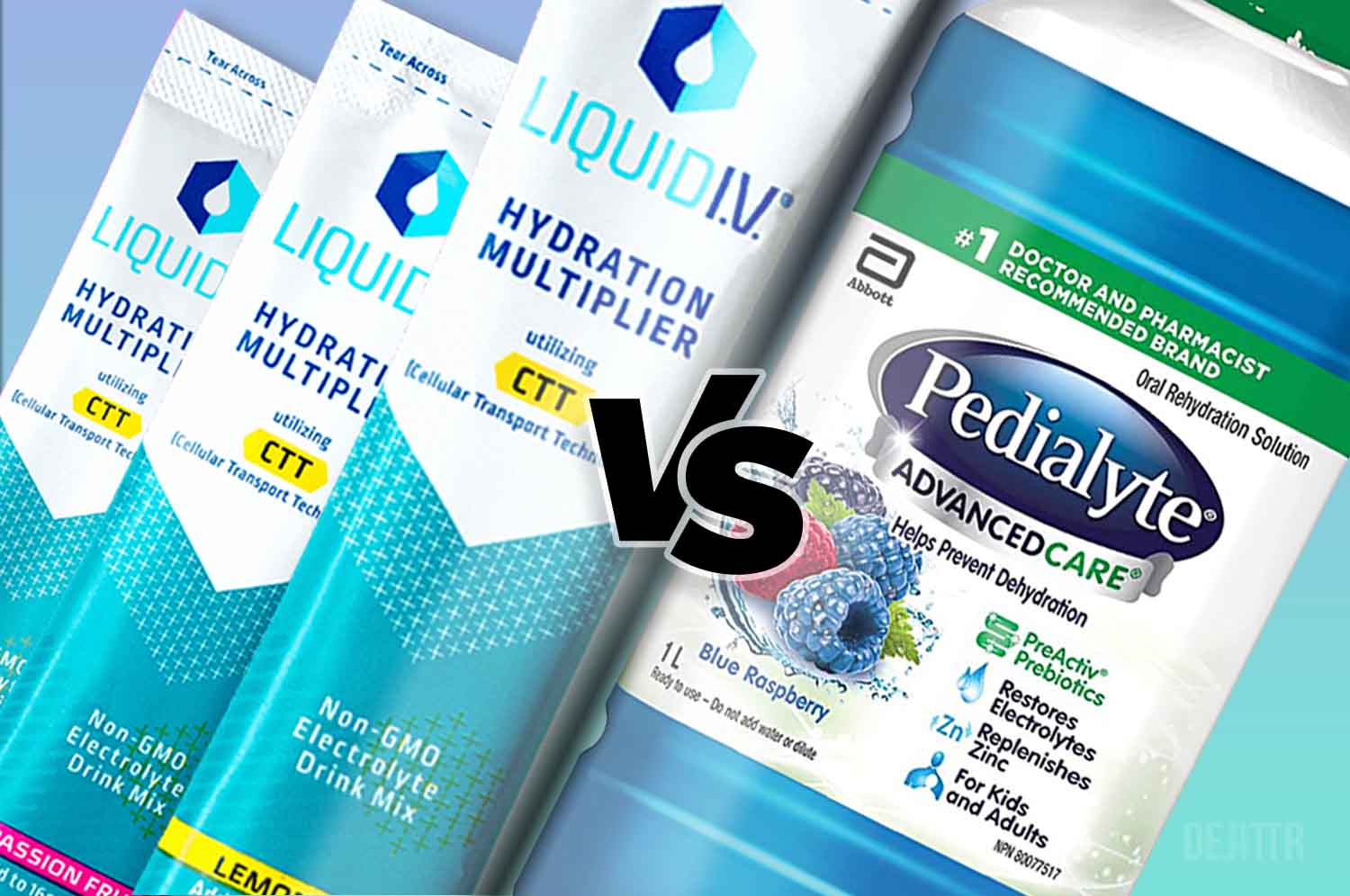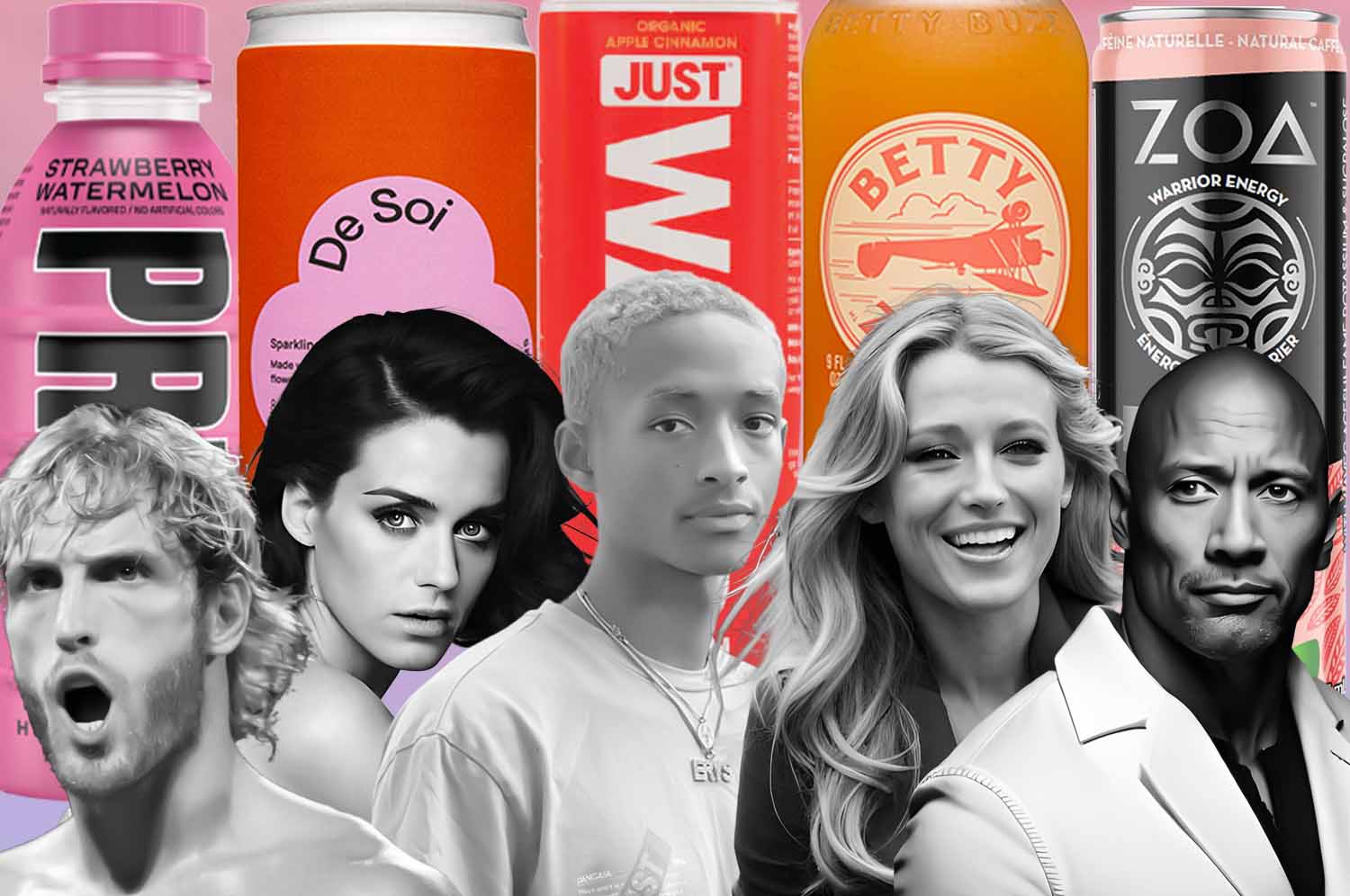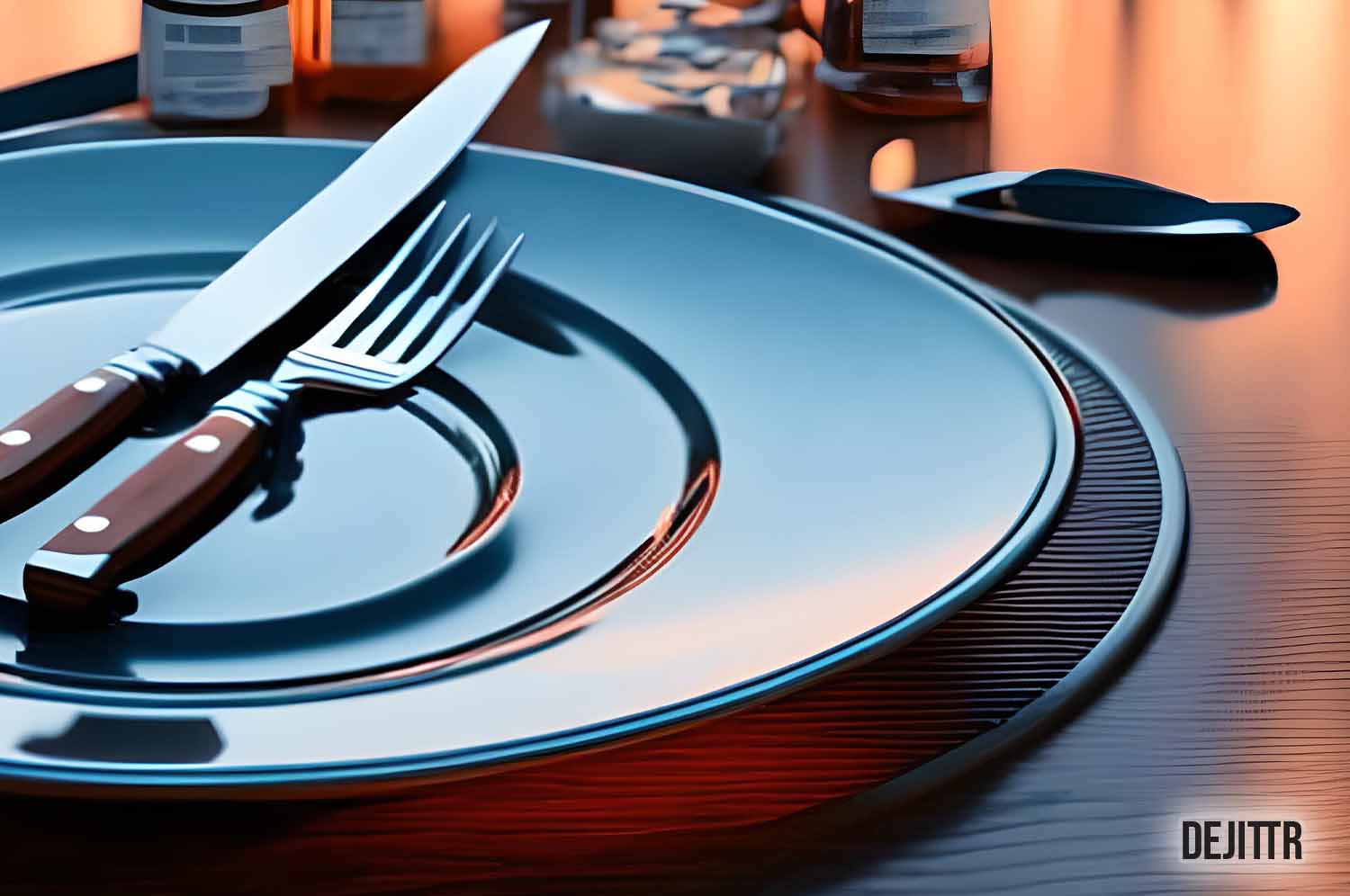Prime beverage products have taken the world by storm. Many kids in the United States and the United Kingdom have been packing stores to get their hands on Prime products.
One thing concerned parents should be aware of is that not all prime products are for kids.
Key Takeaways:
Prime offers three beverage-based products, Prime Hydration, Prime Hydration sticks, and Prime Energy. Prime Hydration and Prime Hydration sticks are ok for kids to consume in moderation. However, The recommended age to consume Prime Energy is 18 years old due to the high caffeine content in the drink.
Which Prime Products Are Ok for Kids?
I must preface this by saying things are “OK” when they are taken within moderation. Things can turn from “OK” for you to bad for you if over-consumed or overused. And this can even result in serious health issues.
Prime Hydration:
In general, Prime Hydration may be a useful option for kids who engage in prolonged or intense physical activities, as it helps to replace fluids and electrolytes lost through sweat. However, Prime may not be necessary for children who are not physically active or do not sweat excessively.
In Canada, the label explicitly mentions that Prime Hydration is intended for adults only and not for children.
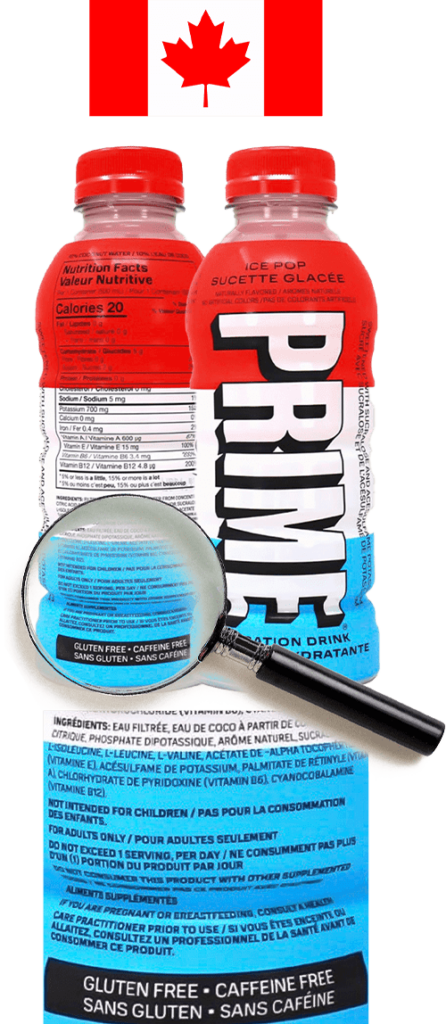
Prime Hydration sticks:
Prime Hydration sticks comes in pre-mixed powder packet form that is made up of most of the same ingredients you will find in a bottle of Prime Hydration. It’s a convenient way to carry around and mix an electrolyte hydration drink on the go.
Prime Energy:
Prime Energy is not recommended for people under the age of 18. Although this beverage has many beneficial ingredients, the high caffeine content makes it unsuitable for kids to drink.
Prime Product Ingredients Chart
| Product | Ingredients |
| Prime Hydration | Zinc Aspartate Dipotassium Phosphate Retinyl Palmitate (Vitamin A) Natural Flavor L-Valine Sucralose Citric Acid Pyridoxine Hydrochloride (Vitamin B-6) Tri Magnesium Citrate Beta Carotene for Color Filtered Water Acesulfame Potassium L-Leucine L-Isoleucine D-Alpha Tocopheryl Acetate (Vitamin E) Coconut Water from Concentrate Cyanocobalamin (Vitamin B-12) |
| Prime Hydration sticks | L-Isoleucine L-Leucine L-Valine Natural Flavor Citric Acid Coconut Water from Concentrate Dipotassium Phosphate Magnesium Citrate Sucralose (Synthetic Sweetener) Sea Salt Cyanocobalamin (Vitamin B-12) Ascorbic Acid (Vitamin C) Zinc Aspartate d-Alpha Tocopheryl Acetate (Vitamin E) Pyridoxine Hydrochloride (Vitamin B-6) Acesulfame Potassium (Synthetic Sweetener) Retinyl Palmitate (Vitamin A) |
| Prime Energy | Carbonated Filtered Water Coconut Water from Concentrate Citric Acid, Natural Flavor Calcium Lactate Magnesium Citrate Potassium Citrate Sodium Citrate Caffeine Sucralose Potassium Sorbate (Preservative) Sodium Benzoate (Preservative) L-Theanine, Inositol Glucuronolactone Taurine Acesulfame Potassium Pyridoxine Hydrochloride (Vitamin B-6) Cyanocobalamin (Vitamin B-12). |
Prime Ingredients That Are Not Suitable for Kids or Questionable?
Prime Energy Stimulants:
Kids under the age of 18 should not drink Prime energy drinks because they contain high levels of caffeine (200mg) and other stimulants that can be harmful to their health and well-being. It’s like giving your child 2 cups of coffee.
Here are some reasons why:
- High caffeine content: Energy drinks contain high levels of caffeine, which can cause heart palpitations, high blood pressure, and anxiety, especially in children whose bodies are still developing. Consuming too much caffeine can also disrupt sleep patterns, leading to fatigue and irritability.
- Other stimulants: Many energy drinks contain additional stimulants such as guarana, taurine, and ginseng, which can increase heart rate and blood pressure and may have harmful effects on children’s developing bodies.
- Dehydration: Energy drinks can lead to dehydration due to their high caffeine content and diuretic effects. Dehydration can cause fatigue, headaches, and other health problems.
Overall, Prime Energy Drinks are not suitable for children, and it is recommended that parents encourage their children to consume water or other healthy beverages instead. If a child needs an energy boost, healthy snacks such as fruits or nuts, or physical activity can be a safer and healthier option.
Prime Hydration Sweetener:
Acesulfame potassium (also known as acesulfame K or Ace-K) and Sucralose are artificial sweeteners that are commonly used in many foods and drinks, including some sugar-free and reduced-calorie products. According to the US Food and Drug Administration (FDA), acesulfame potassium and Sucralose are safe for consumption by both children and adults when consumed in moderation.
However, some studies have suggested that consuming large amounts of artificial sweeteners may adversely affect health.
Therefore, while both artificial sweeteners are generally considered safe for children, it is important to consume it in moderation, just like any other sweetener or food additive. Parents should also be aware of the potential risks associated with consuming artificial sweeteners and consider alternatives such as natural sweeteners like honey or maple syrup whenever possible. Additionally, it is always a good idea to consult with a pediatrician if there are any concerns about a child’s diet or health.
Why Do Kids Like Prime?
- Taste: Prime Hydration is a sports drink that comes in various flavors and contains 2g sugar, and is sweetened with Ace-K) and Sucralose. Kids find the sweet taste appealing and enjoyable. Many popular Sports drinks contain high levels of sodium which needs to be balanced out with sweeteners. Prime Hydration, however, only contains 10mg of Sodium.
- Variety of flavors: Prime Hydration comes in various flavors, such as Ice Pop (bottle is designed to look like the iconic red, white, and blue ice cream popsicle), Strawberry Watermelon, Grape, Blue Raspberry, and Tropical Punch, which may appeal to kids who like to try different flavors.
- Marketing and branding: For being a new product Prime Hydration has made a major buzz in the market. In its first year of business, the Prime brand accumulated $250 million in retail sales. This success is partly due to being backed by two social media personalities that have large followings. Logan Paul and KSI leveraged their many followers to promote their new brand.
Video of kids pushing each other to get bottles of Prime Hydration:
Can you Drink Prime Energy if You’re Pregnant?
It is generally not recommended to consume more than 200 mg per day, according to research done by the American College of Obstetricians Gynecologists (ACOG). They also state that less than 200 mg of caffeine daily is not linked to an increased risk of miscarriage or preterm birth.
Large amounts of caffeine can cross the placenta and reach the developing baby, potentially increasing the risk of miscarriage, preterm labor, and low birth weight. High levels of caffeine can also affect the mother’s heart rate, blood pressure, and sleep patterns.
If you are pregnant and looking for a source of energy, it is best to talk to your healthcare provider about safe options. They may recommend eating a balanced diet, staying hydrated, and getting enough rest and exercise to maintain energy levels.
Recommended Read: Can I Drink Energy Drinks While Pregnant?
Can You Drink Prime Energy If You’re Nursing?
It is generally recommended that nursing mothers limit their consumption of energy drinks or avoid them altogether, as the caffeine and other stimulants they contain can be passed through breast milk to the infant.
While moderate caffeine consumption is considered safe for most adults, infants may be more sensitive to the effects of caffeine, which can lead to irritability, poor sleep, and other issues. Additionally, some energy drinks may contain other ingredients, such as herbal supplements or other stimulating ingredients, that could also harm the infant.
If you are nursing and looking for a source of energy, it is best to talk to your healthcare provider about safe options. They may recommend eating a balanced diet, staying hydrated, and getting enough rest and exercise to maintain energy levels.
Other Recommended Sports Hydration Drinks for Kids
Sports drinks are designed to replenish fluids and electrolytes lost during physical activity, and they can be beneficial for kids involved in intense or prolonged exercise. However, not all sports drinks are created equal, and some may contain high levels of sugar or artificial ingredients that are not good for kids to consume.
When it comes to choosing a sports drink for kids, it’s important to look for options that are low in sugar and contain natural ingredients. Here are some sports drinks that may be good for kids to drink:
- Coconut water: Coconut water is a natural electrolyte-rich drink that is low in sugar and contains potassium, magnesium, and calcium. It can be a good option for kids who need to rehydrate after exercise.
- Pedialyte: Pedialyte is a hydration solution designed for children and infants who are sick or dehydrated. It contains a balanced amount of electrolytes and glucose, making it an effective way to rehydrate after physical activity.
- Nuun Sport: Nuun Sport is a low-sugar, electrolyte tablet that can be added to water. It contains natural ingredients like plant-based sweeteners, and is a good option for kids who need to rehydrate without consuming too much sugar.
- BodyArmor Lyte: BodyArmor Lyte is a low-sugar sports drink that contains coconut water, electrolytes, and vitamins. It is designed for light exercise and can be a good option for kids who are involved in less intense activities.
Remember, while sports drinks can be helpful for kids who are involved in intense or prolonged exercise, they should not be used as a replacement for water as a primary source of hydration. Encourage your child to drink plenty of water throughout the day, and to only use sports drinks when needed during or after exercise.


